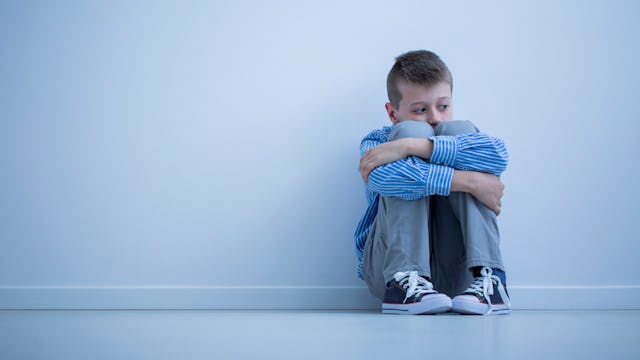Kids Are Less Violent In Countries That Ban Spanking

Youth living in countries with bans on corporal punishment were 31 percent less violent
In a new study, researchers found banning spanking and other forms of corporal punishment led to reduced violence in youth and later in life.
Researchers analyzed data across 88 countries, territories, and protectorate states and over 400,000 adolescents in what’s being called the “largest cross-national analysis of youth violence.” They published their results Monday in the journal BMJ. What they found isn’t too surprising. “Societies that have these bans in place appear to be safer places for kids to grow up in,” said lead study author Frank Elgar.
The study used data from two ongoing global surveys, the Health Behavior in School-aged Children and the Global School-based Health survey, which interviewed kids between the ages of 13 to 17 who were asked about their participation in physical altercations (with frequent being four or more fights within that period).
Of the 88 counties covered, 30 had full bans on spanking or other forms of corporal punishment (including New Zealand, Iceland, Portugal, Spain and a number of Scandinavian nations), 38 countries had partial bans (including the US, UK and Canada), and 20 had no bans in place (including Israel and Egypt). Corporal punishment was defined as an adult’s use of physical force to “correct or control” a child’s behavior.
Elgar and his researchers found “Boys in countries with a full ban showed 69% the rate of fighting found in countries with no ban. In girls, the gap was even larger, with 42% the rate of fighting found in countries with no ban.” The lowest rates of violence were found in Costa Rica, Portugal, Finland, Honduras, Spain, New Zealand and Sweden, in that order.
This isn’t the first study to link spanking with a future proclivity toward violence. A 2016 study out of the University of Texas, published in the Journal of Family Psychology, looked at over 160,000 kids and found the more children are spanked, the more likely it is they will defy their parents, experience increased anti-social behavior, aggression, and mental health problems in adulthood.
Globally, close to 300 million children ages two to four receive some type of physical discipline from their parents or caregivers on a regular basis, according to a 2017 UNICEF report, which is not surprising. It seems most parents firmly sit in a “spanking” or “no spanking” camp for reasons including their own upbringing and beliefs on effective discipline. But studies like these go a long way in educating parents on the future impacts this type of punishment can have.
Researchers also surmised they may find a distinction in violence dependent on how rich or poor a country was but this factor didn’t impact the overall findings. “Bans and levels of youth violence had no relationship to the wealth of a country,” Elgar said. “Some very low-income countries happen to be quite peaceful, while some richer nations, such as the US, UK and Canada, didn’t fare as well.”
Children, as with anything in life, look to their parents and the larger society for cues to their own behavior. If we want to raise a generation of nonviolent youth, one of the ways we can do this, according to this study, is to practice what we preach.